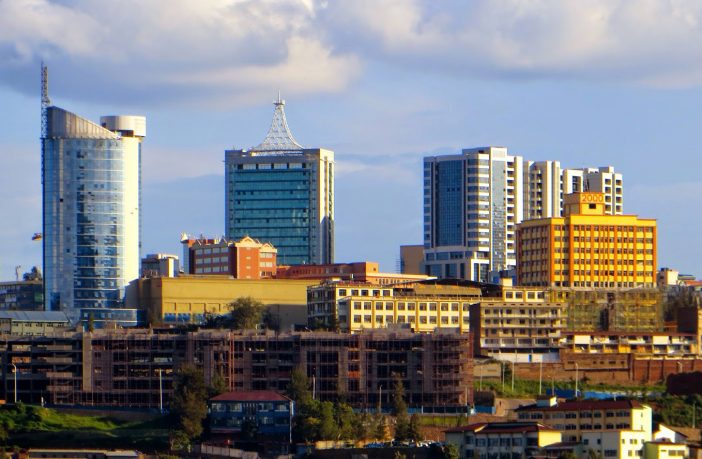- Construction of a new water facility is well under way in Rwanda and is on track for completion by 2020.
- The Kigali Bulk Water Supply Project (KBW), is one of the first public/private partnership water supply and treatment projects to be undertaken in sub-Saharan Africa.
- The Emerging Africa Infrastructure Fund (EAIF), a part of the Private Infrastructure Development Group (PIDG), arranged the debt finance for the project.
- The KWL project clearly demonstrates the value of using “blended finance” – with investment from both public and private sources.
The project was then awarded to Kigali Water Limited (KWL), a Rwandan subsidiary of Metito, one of the world’s largest water management and allied infrastructure companies. KWL represents sub-Saharan Africa’s largest known build, operate and supply water deal.
Delivering up to 40 million litres of water a day, the new plant is expected to grow Kigali’s existing water capacity by a third, representing a significant addition to the city’s fresh water resources.
Some 500,000 of Kigali’s population of one million will benefit directly from the new facility. Read more: Rwanda acquires $131m to advance water projects
EAIF loaned $19 million of senior debt and $2.6 million of junior debt to KWL. The African Development Bank provided another $19 million of senior debt; with all loans being for an 18-year term.
The lenders are covering $40.6 million of the capital cost of the $60.8 million project. The balance in equity finance was provided by Metito. Since 2017, the financing of the Kigali project has won five prestigious awards from leading project finance and infrastructure media groups.
In addition to the finance arranged and provided by EAIF, the project benefited from a $6.25 million grant from PIDG’s Technical Assistance Facility.
The grant was a significant element in the creation of the financial package for KWL, as was the role as a third PIDG company, DevCo, which provided critical support at the project evaluation and business modelling stage.
The KWL project clearly demonstrates the value of using “blended finance” – with investment from both public and private sources. PIDG pioneered the concept of blended finance and has become a world-leading authority on mobilising public and private capital in emerging economies.
For PIDG CEO, Philippe Valahu, the collaborative work of PIDG companies allows for an integrated view of infrastructure project financing that results in successful outcomes along the entire project life cycle.
“We have a suite of products that cover the capital structure and that can work collaboratively to offer solutions – and a new strategy that will allow us to replicate what we have been doing at an even greater scale,” said Valahu.
PIDG’s new strategy, launched in January 2019, focusses on identifying market failures in infrastructure financing and finding replicable ways to address them to deliver pioneering infrastructure at scale and in ways that are replicable, affordable and transformative.
Author: Emilio Cattaneo, executive director at The Emerging Africa Infrastructure Fund
Author: GBA News Desk/ESI-Africa Contributor
This article was originally published on ESI Africa and is republished with permission with minor editorial changes.











